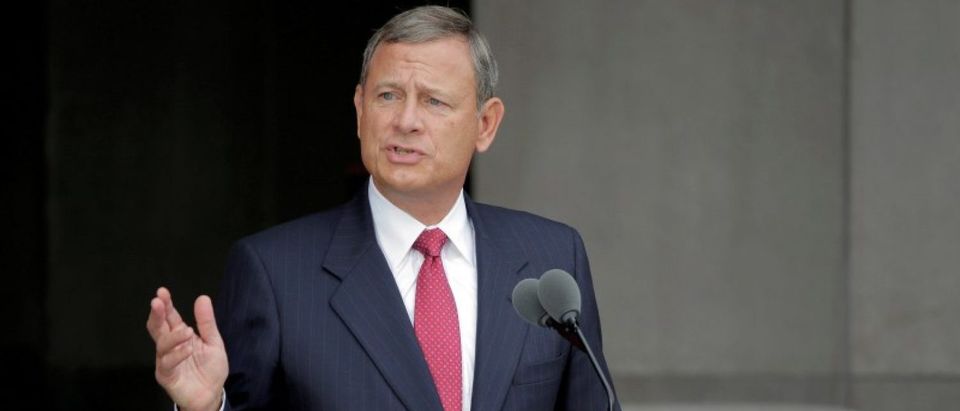In his annual year-end report, Chief Justice John Roberts expressed concern about workplace harassment in the federal courts, just days after a prominent appeals judge resigned in disgrace amid mounting allegations of sexual misconduct.
Though the report primarily concerns disaster readiness protocols for the judiciary, Roberts noted that the Administrative Office of the U.S. Courts will conduct a thorough review of existing mechanisms for reporting and investigating misconduct, particularly allegations concerning federal judges.
“Events in recent months have illuminated the depth of the problem of sexual harassment in the workplace, and events in the past few weeks have made clear that the judicial branch is not immune,” the chief justice wrote. “The judiciary will begin 2018 by undertaking a careful evaluation of whether its standards of conduct and its procedures for investigating and correcting inappropriate behavior are adequate to ensure an exemplary workplace for every judge and every court employee.”
The Administrative Office circulated a memo on Dec. 23 noting that the chief justice ordered a review of “the safeguards currently in place within the judiciary to protect court employees, including law clerks, from wrongful conduct in the workplace.” The agency is the primary administrative entity for all federal courts.
The memo was issued following Judge Alex Kozinski’s resignation from the 9th U.S. Circuit Court of Appeals Dec. 18. A 1985 appointee of President Ronald Reagan, Kozinski was widely recognized as a leading light of the federal courts. Clerkships in his chambers were highly-coveted among law students, as his proteges frequently went on to clerk at the Supreme Court.
Roberts noted that the Administrative Office’s inquiry will include a review of the requirements binding law clerks to strict confidentiality. The relationship between judges and law clerks are incredibly intimate, both during and after a clerkship. Formal and informal norms at the highest echelons of the legal profession demand a high degree of loyalty from former clerks, and look askance on those who speak ill of their judges or disclose sensitive information about their deliberations.
Dan Epps, a law professor at Washington University of St. Louis, noted that the power dynamic between judge and clerk easily lends itself to exploitation on a recent episode of First Mondays, a widely-consumed podcast about the Supreme Court. Epps clerked for Justice Anthony Kennedy and Judge J. Harvie Wilkinson III of the 4th Circuit.
“This relationship between a judge and a law clerk is very prone for abuse given how much power the judge has,” Epps said. “The judge is the sole person you work for. The judge doesn’t really have a boss and the judge cannot be fired absent an extraordinary set of events happening.”
Also WATCH:
Send tips to kevin@dailycallernewsfoundation.org.
The Daily Caller News Foundation is working hard to balance out the biased American media. For as little as $3, you can help us. Freedom of speech isn’t free. Make a one-time donation to support the quality, independent journalism of TheDCNF. We’re not dependent on commercial or political support and we do not accept any government funding.
All content created by the Daily Caller News Foundation, an independent and nonpartisan newswire service, is available without charge to any legitimate news publisher that can provide a large audience. All republished articles must include our logo, our reporter’s byline and their DCNF affiliation. For any questions about our guidelines or partnering with us, please contact licensing@dailycallernewsfoundation.org.



